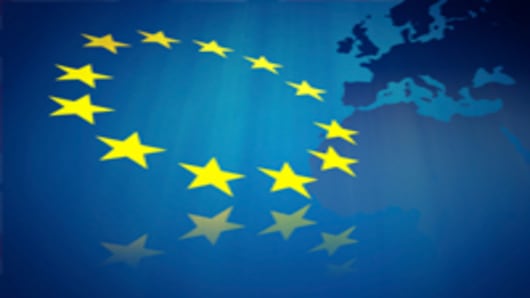It’s a gloomy business being gloomy and it gets me down.
Markets may have risen substantially since the market low in March 2009 but there’s still no shortage of doom sayers out there.
They soberly point out that we have just spent two years shuffling debt around the global economy, point to inherent weaknesses in a fractional banking system and evoke metaphors involving deck chairs and large ocean liners.
Take the response to the euro zone’s bailout planslast Friday morning.
The initial market response was a sigh of relief with modest gains for risk assets but there were negative voices aplenty.
As one CNBC viewer put it last week: "The problem with the world today is that everyone is so negative".
I have never been a natural pessimist so here are some snippets of positive reaction to keep your half-full glasses topped up.
Holger Schmieding at Berenberg Bank extols the virtues of the plan, calling it a major deal.
He likes the fact that the private sector role has been settled, the periphery will benefit from longer debt maturities and lower rates, the plan reduces contagion risk by allowing preventative interventions by the EFSF (European Financial Stability Fund) and the fiscal outlook for Greece will be cushioned.
He does acknowledge that hyper-sceptical markets may not be convinced though.
Charles Diebel at Lloyds Bank Capital Markets describes the plan as a "good start" with "no obvious large gaps".
Of course he sensibly cautions that the devil lies in the detail but he likes the increased scope and flexibility of the EFSF saying ‘in terms of providing a firebreak in the context of wider euro area contagion, this factor is considered highly significant’.
Now I don’t suggest that we should greet the plan with a renewed taste for irrational exuberance but what’s wrong with a bit of positivity? A "maybe it will actually be ok" kind of outlook.
An outlook that acknowledges its not the creation of a fully fledged euro bond, but it IS a plan, and it’s a plan for more than just Greece.
If we don’t like glass half full or empty we could call it "glass with water half way"? I suppose the danger with this attitude is that it leaves markets free to focus on the real economy.
And unfortunately talking about a mid-cycle slowdown over the last couple of weeks seems to have become a main stream rather than a niche view.
But that’s a half empty glass for another day.



